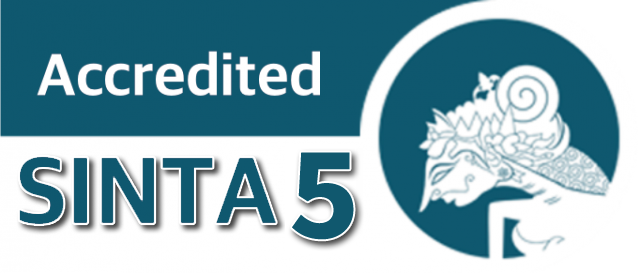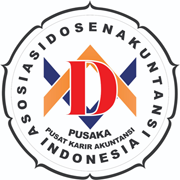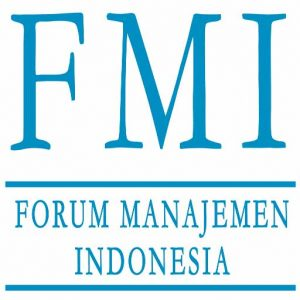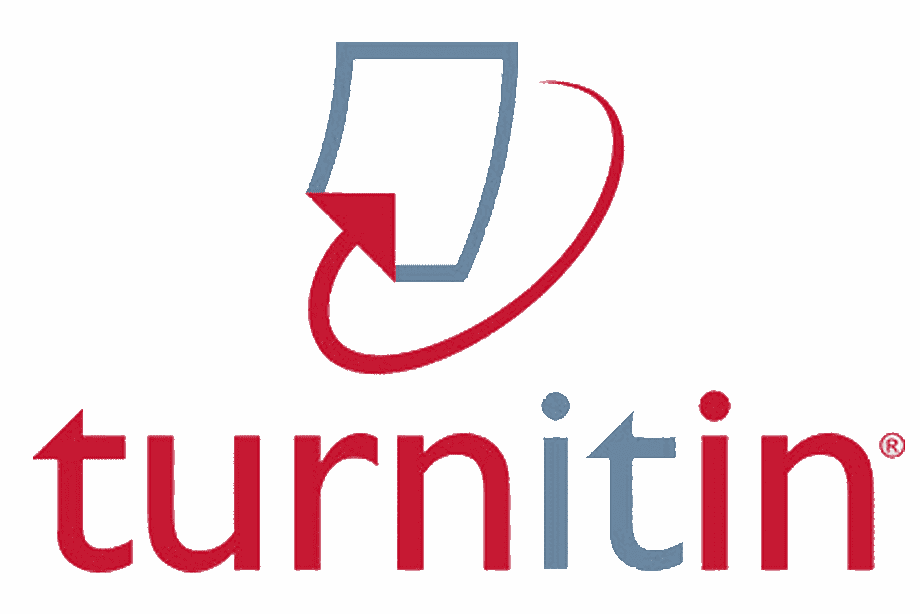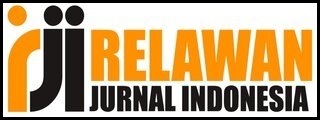Dampak Konflik Peran Ganda Dan Self Efficacy Terhadap Kinerja Karyawan Perbankan Di Semarang
Keywords:
Kinerja karyawan, MRA, Konflik peran ganda, Self efficacyAbstract
Kehidupan modern saat ini memiliki banyak masalah yang dihadapi para pekerja dimana konflik pekerjaan dan keluarga merupakan salah satu faktor yang memiliki pengaruh yang cukup besar. Konflik antara pekerjaan dan keluarga dapat berdampak pada kinerja karyawan. Untuk meningkatkan kinerja sebuah perusahaan dibutuhkan kinerja karyawan yang tinggi. Perusahaan untuk memiliki sumber daya manusia yang memiliki kinerja yang tinggi maka diperlukan kualitas sumber daya manusia yang tinggi dan untuk mendapatkan kualitas sumber daya manusia yang baik diperlukan adanya self efficacy yang tinggi. Penelitian bertujuan untuk menganalisis pengaruh konflik peran ganda terhadap kinerja karyawati di perbankan yang dimoderasi oleh self efficacy. Jenis penelitian adalah penelitian kuantitatif. Populasi penelitian adalah seluruh karyawati yang bekerja di perbankan. Teknik pengumpulan data menggunakan kuesioner dengan mengam-bil 100 responden sesuai dengan kriteria yakni bekerja minimal selama 1 tahun dan sudah menikah. Alat analisis yang digunakan pada penelitian ini menggunakan Moderated Regression Analysis (MRA). Berdasarkan hasil penelitian diperoleh hasil pada model pertama menunjukkan bahwa variabel konflik peran ganda berpengaruh secara negatif dan signifikan terhadap kinerja karyawati. Model kedua menunjukkan bahwa self efficacy berpengaruh secara positif dan signifikan terhadap kinerja karyawati. Model ketiga menunjukkan bahwa self efficacy bukan merupakan variabel pemoderasi antara konflik peran ganda dengan kinerja karyawati.
References
Ansari, S. (2011). Gender difference : Work and family conflicts and family-work conflicts. Pakistan: Pakistan Business Review.
Ashfaq, S., Mahmood, Z., & Ahmad, M. (2013). Impact of Work-Life Conflict and Work Overload on Employee Performance in Banking Sector of Pakistan. Middle-East Journal of Scientific Research, 688-695.
Bandura, A. (1986). Social foundations of thought and action: A social cognitive theory. New York: Prentice Hall.
Bandura, A. (2006). Toward a psychology of human agency. Perspectives on Psychological Science, 1, 164–180.
Boyar, S., Maertz, C. J., Pearson, A., & Keough, S. (2003). Work-Family Conflict: A Model of Linkages between Work and Family Domain Variables and Turnover Intentions. Journal of Managerial Issues, 175-190.
Carter, W. R., Nesbit, P. L., Badham, R. J., Parker, S. K., & Sung, L. (2016). The effects of employee engagement and selfefficacy on job performance: a longitudinal field. The International Journal of Human Resource.
Chen, G., Gully, S., & Eden, D. (2001). Validation of a new general self-efficacy scale. Organizational Research Methods, 62-83.
Cohen, A., & Liani, E. (2009). Work-family conflict among female employees in Israeli Hospitals. Personnel Review, 124-141.
Edwards, J., & Rothbard, N. (2000). Mechanism linking work and family: Clarifying Mechanism linking work and family: Clarifying. Academy of Management Review, 179-199.
Fadzilah, A. (2006). Analisis Pengaruh Pemberdayaan Karyawan Dan Self of Efficacy Terhadap Kinerja Karyawan Bagian Penjualan (Studi Kasus Pada Pt. Sinar Sosro Wilayah Pemasaran Semarang).
Fahmi, I. (2011). Manajemen Kinerja, Teori dan Aplikasi. Bandung: Alfabeta.
Fredriksen, G., & Scharlach, A. (2001). Families and work: New directions in the twenty-first century. New York: Oxford University Press.
Frone, M. R., & Cooper, M. L. (1992). Prevalence of Work-Family Conflict: Are Work and Family Boundries Asymmetrically Permeable?. Journal of Organizational Behavior, 723-729.
Frone, M., Russell, M., & Cooper, M. (1992). Antecedents and outcomes of work-family conflict: testing a model of the work-family interface. Journal of Applied Psychology, 65-78.
Gibson, J. L. (2003). Organizations: Behavior Structure Processes, Eighth Edition. Singapore:.McGraw-Hill Companies Inc.
Glaser, W., & Hecht, T. D. (2013). Work-family conflicts,threat-appraisal, self-efficacy and emotional exhaustion. Journal of Managerial Psychology, 164-182.
Grandey, A., & Cropanzano, R. (1999). The conservation of resources model applied to work-family conflict and strain. Journal of Vocational Behavior, 350-370.
Grandey, A., Cordeiro, B., & Crouter, A. (2005). A longitudinal and multi-source test of the work-family conflict and job satisfaction relationship. Journal of Occupational and Organizational Psychology, 305-323.
Greenhaus, J. H. (1985). Sources of Conflict between Work and Family Roles. Journal of The Academy of Management Review, 76-88.
Greenhaus, J. H., & Beutell, N. J. (1985). Sources of conflict between work and family roles. Academy of Management Review, 76-88.
Judge, T. A., Jackson, C. L., Shaw, J. C., Scott, B. A., & Rich, B. L. (2007). Self-efficacy and work-related performance: The integral role of individual differences. Journal of Applied Psychology, 107–127.
Karatepe, O. M. (2013). The effects of work overload and work-family conflict on job embeddedness and job performance. International Journal of Contemporary Hospitality Management, 614-634.
Konrad, A., & Mangel, R. (2000). The Impact of work-life programs on firm productivity. Strategic Management Journal, 1225-1237.
Lazarus, R. (1993). From psychological stress to the emotions: a history of changing outlooks. Annual Review of Psychology, 1-21.
Lee, C.-y., & Hong, K.-s. (2005). Work-Family Conflict and Its Relationship With Social Support. Educational Research Journal.
Luthans, F. (2004). Organizational Behavior, Tenth Edition. Jakarta: ANDI.
Muallifah, M., & Astuty, I. (2016). Pengaruh Konflik Peran Terhadap Kinerja Dengan Self Efficacy Sebagai Variabel Moderasi. Jurnal Manajemen Bisnis.
Netemeyer, R., Boles, J., & McMurrian, R. (2005). Development and Validation of Work-Family Conflict and Family-Work Conflict Scales. Journal of Applied Psychology, 400-410.
Patel, C., Govender, V., Paruk, Z., & Ramgoon, S. (2006). Working Mothers: Family-Work Conflict, Job Performance and Family/Work Variables. Journal of Industrial Psychology, 39-45.
Rivai, & Basri. (2005). Performance Appraisal, Cetakan pertama, Edisi pertama. Jakarta: PT.Raja Grafindo.
Robbins, S. (2003). Organizational Behavior,Indonesian Edition. Jakarta: PT Index Group Gramedia.
Suryanto, V. (2020, February). Nasional/Makroekonomi. Retrieved from Kontan.co.id: https://nasional.kontan.co.id/news/bps-jumlah-penduduk-usia-kerja-di-indonesia-per-febuari-2020-bertambah-292-juta
Tziner, A., Rabenu, E., Radomski, R., & Belkin, A. (2015). Work stress and turnover intentions among hospital physicians: The mediating role of burnout and work satisfaction. Journal of Work and Organizational Psychology, 207-213.
Umam. (2010). Performance Appraisal, Second Edition, First Edition. Jakarta: Salemba Empat.
Williams, L., & Anderson, S. (1991). Job Satisfaction and Organizational Commitment as Predictors of Organizational Citizenship and In-Role Behaviors. Journal of Management, 601-617.
Downloads
Published
How to Cite
Issue
Section
License
Copyright (c) 2022 Jurnal Orientasi Bisnis dan Entrepreneurship (JOBS)

This work is licensed under a Creative Commons Attribution-ShareAlike 4.0 International License.

This work is licensed under a CC Attribution-ShareAlike 4.0

 Awanis Lianti Haziroh
Awanis Lianti Haziroh
 Universitas Dian Nuswantoro
Universitas Dian Nuswantoro

